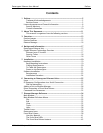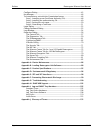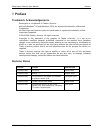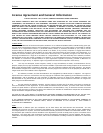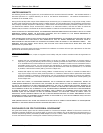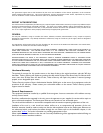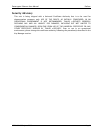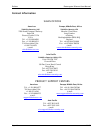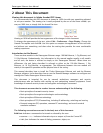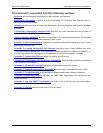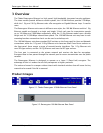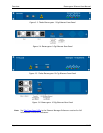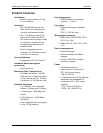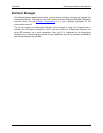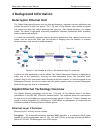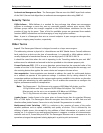
Datacryptor Ethernet User Manual About This Document
1270A450-005 - June 2008 Page 11
2 About This Document
Viewing this document in Adobe Acrobat PDF Viewer
It is recommended that this PDF document is viewed at 100% size with text smoothing adjusted
to suit your monitor. The viewing size is easily adjusted by the use of the Zoom toolbar; you
may set 100% size, or simply click the Actual Size icon:
Viewing at 100% will provide the best appearance of the images in this document.
To change the appearance of the text, select: Edit > Preferences > Page Display. Change the
Smooth Text option and click OK. Use this option to compare the appearance of the text with
and without text smoothing, and then select the setting that provides the most comfortable
reading experience.
Introduction to this Manual
There are three models in the Datacryptor Ethernet range: 100 Mb Ethernet, 1 Gig Ethernet, and
10 Gig Ethernet. Predominantly, the information in this manual applies equally to all models
and as such, the device is referred to simply as the ‘Datacryptor Ethernet’. Where there are
differences, the unit being described is referred to either as the 100 Mb Ethernet, 1 Gig
Ethernet, or 10 Gig Ethernet, as appropriate. The differences between the two models are
mainly in the speed of operation and the physical size of the casing.
This manual describes how to install the Thales Datacryptor Ethernet unit and the Element
Manager software. It also describes how to use the Element Manager software to configure and
manage the Thales Datacryptor Ethernet device.
This document is intended for use by network technicians, managers and security
administrators who are familiar with setting up and maintaining network equipment. Some
knowledge of network security issues and encryption technologies is assumed.
This document assumes that its readers have an understanding of the following:
• Basic principles of network security issues
• Basic principles of encryption technologies and terminology
• Basic principles of Ethernet technology
• Basic principles of TCP/IP networking, including IP addressing, switching and routing
• Personal computer (PC) operation, common PC terminology, and use of terminal
emulation software.
The following conventions are used in the body text of this document:
Bold font: Indicates a command to be issued or selected by the user.
• Courier font: Indicates information input or output to/from the Control PC.
• Italic font: Indicates the name of dialog, parameter, object, etc.



